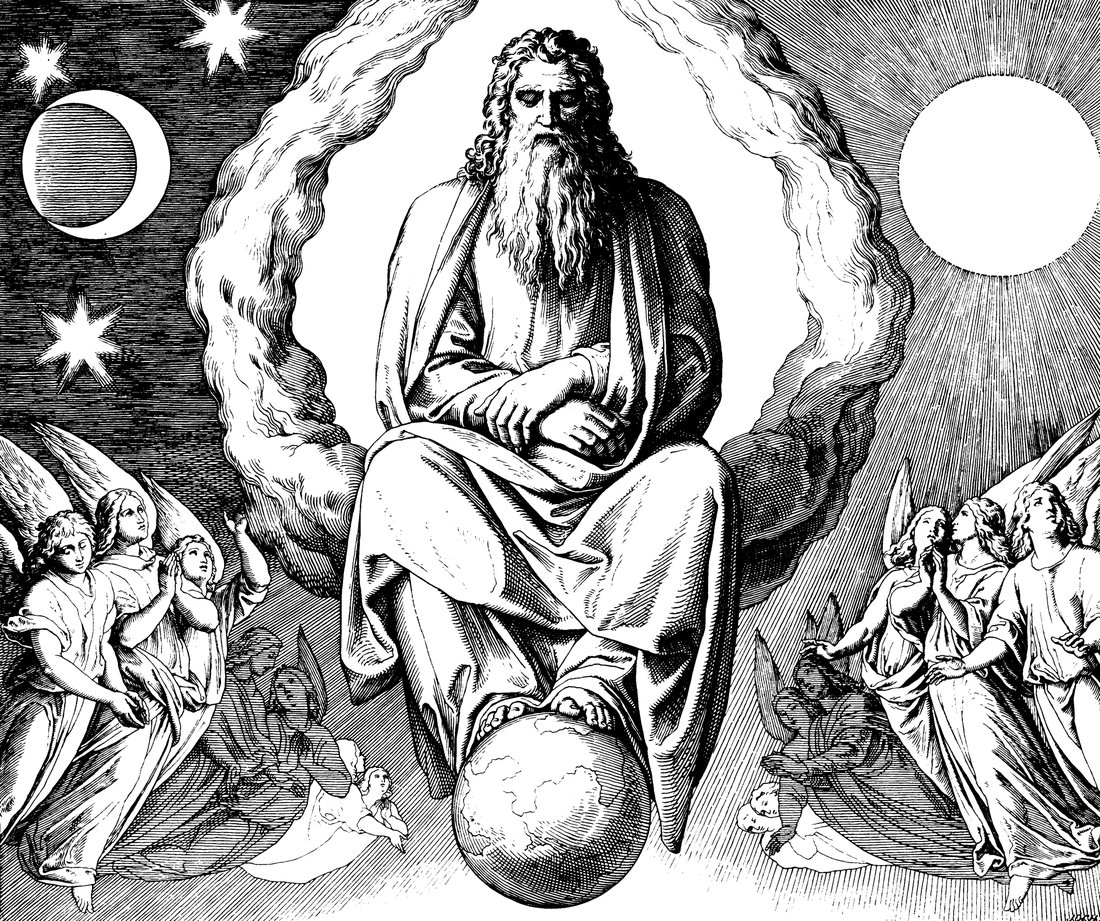|
In First Church Somerville’s fabled “Baby Boom” year we had 13 babies born into the congregation. Even more babies were finding us on Yelp or Facebook and showing up as visitors. Over the course of that year and the following year, we baptized bushels of babies.
An infant baptism is an incredible joy. Absolutely, a new life deserves the most sacred and the most holy welcome we can muster from our deepest faith and greatest hopes! As a church, that means offering a Sacrament, a Sacred Mystery, quite literally (but even more mysteriously), an Act of God. In spiritual and religious terms, there is nothing greater and nothing more fundamental we could do as Christians to welcome a baby into life and into faith. What could be more beautiful than the splash that happens when God and a baby miraculously intersect in the waters of baptism? And such holiness brings everybody out - the parents, the grandparents, the godparents, the whole family, the whole community of faith - all to make promises to one another and the babe. In the midst of this holy interaction between God and us, we vow that we will all care for this human life, the greatest gift and responsibility that could be entrusted to us, thanks be to God. An infant baptism is so full of joy and Spirit that I would say it's an unforgettable experience - for everyone except the baby. Many of the newbies who show up at First Church as adults and not babies fall into the category of the “unchurched.” The strictly unchurched have no religious background. Some have never been inside a church before! And that unchurchedness extends along a spectrum out toward people who got some church when they were young, but it’s been years or decades since a church was a part of their lives. So some of our unchurched newbies are unbaptized. And some of our unchurched newbies were baptized as infants. While we wouldn't expect them to remember their baptism, sometimes it seems that there is NO memory of the event whatsoever. A not uncommon conversation on baptism with newbies at First Church goes something like this: “Can I be baptized when I join the church?” “Have you ever been baptized in a church before?” “Hmmm. I think so. Maybe? I’d have to check…” When they find out that they were indeed baptized as infants under the strict orders of some grandparent or another, they’re often disappointed to discover that in the UCC (and most other Christian denominations) no “rebaptism” is required (or for that matter possible) for them to officially join the church. As baptism is a singular and salvific Sacrament, most Churches recognize - even if they feel that the human form of the ritual of baptism was somehow unorthodox - that God, mysteriously and graciously, still acts. But I understand their disappointment completely, and I have a deep compassion for their feeling that a Sacramental opportunity has been taken from them. “All is not lost,” I say, “we can remember your baptism.” “But I don’t remember.” At one level, a lack of remembering, for the infant, is unavoidable. Baby brains just don’t operate that way. Probably to ensure our sanity in later life, our brains don’t start laying down typical memories until we’ve figured a few key things out. At another level, for the person of faith, it’s important to remember that memory is more than the materialist phenomenon that happens on the gray matter inside our skulls. Some remembering is wider than us, and some deeper. The wide remembrance of a baptism is held in the individual and communal memories of all those who gathered together to perform and witness it. Everyone present made promises. Taking those promises seriously and fulfilling them is one kind remembrance. When we act toward a child, or an adult, in accordance with the promises Christians make at baptism, we enact a remembrance of that person’s baptism. But indifference toward God or prejudice toward the person God has created can cause a wide memory to narrow down to insignificance, leaving a spiritual amnesia in the lived experience of the neglected or rejected baptizee. But the remembrance of baptism is also held more deeply than us. Unfortunately when personal and communal memory fails us, it can be hard to know that such a deep memory exists. The newbie longing for baptism has awakened to a feeling within them that God loves them. That love is more than a feeling! There is a totality and fullness within that love that is more complete than the partiality of even our most vivid memories. This love is an experience of what the New Testament Greek calls God’s agape. Agape is a love distinct from other kinds of love - erotic, romantic, familial, or otherwise. C.S. Lewis wrote that agape love is the love that is absolutely and unconditionally dedicated to the well-being of others. Our baptisms are an act of this deep, unbreakable, fully knowing agape. In God’s love, we and our baptisms are contained and remembered. “But I don’t remember.” “Don’t worry,” I say, “If we baptized you today, it would take some Imagination to fully grasp the Mystery of what was happening. And it will take the same amount of Imagination to fully grasp the Mystery of what has already happened to you in baptism.” Of course by Imagination, I don’t mean “imaginary” or “fantastical.” What I mean is that to “comprehend” a Sacred Mystery, one must open oneself up to a Sacred Imagination. The empowered Christian Imagination is itself, in some ways, Sacramental. It is a means by which we can experience a dim, partial reflection of a Truth and a Reality that is total and complete, but beyond our limited ability to grasp. The place and date of your baptism may not be within your control, but the reality is that the place and date of your baptism are incomplete reflections of your Baptism which is truly contained in the infinite eternity of God. That is where your Baptism is - infant or adult. The spiritual exercise of Remembering begins with a faithful Imagination that can hope for such a limitless love.
1 Comment
I have an awesome job. I don't always know if I'm good at being a pastor, but it's always fun trying. This morning at office hours Scott leaned over to me as Megan and Bonnie were chatting and asked me sotto voce: "Jeff, what is God?" I must admit that I failed to answer well immediately. Cut me some slack. It was early and it's a BIG QUESTION. We chatted about it for like an hour, in which time we got somewhere after talking about a lot of things. First, when it comes to God I have never found there to be any easy answers. If you want easy answers, I am mostly incapable of providing them because I often feel called to work out an issue with people so thoroughly that in the end your question is 50% answered, 50% irrelevant, and 100% leading you toward the next question or struggle in your journey of spiritual discovery. Of course, we all have to pace ourselves, and there are times when we just need to rest in the love of our Creator, Savior, and Sustainer - no questions asked. Scott and I discussed apophatic theology, the via negativa: God exists. God does not exist. God does not not exist. And we talked about the closest approximation to an easy answer on God that I know how to give:
God is a Mystery.
This piece of my theology gets woven into worship services when I introduce the Prayer that Jesus taught us, the Lord's Prayer: "When the disciples asked Jesus how to pray he taught them these words so that we would always have a means to connect with the Great Mystery..."
I had a similar amazing-Spirit-talk talk in Diesel Cafe last week with Jessica where we were asking similar questions, this time about Jesus. Who is this Jesus person anyway? I again expressed this piece of my theology. For me, Jesus is the entryway into the BIG QUESTION. These two conversations brought me back to writing out my theological perspective for my ordination paper. The whole paper is 20 pages long. I'll spare you. But the opening paragraphs on my theology and the opening paragraph on "Why Jesus" seem relevant here, so I'll share them:
Centuries of theological writings and discussions on the topic of God have demonstrated how absolutely difficult it is to say anything about God at all. What can we say about God? What should we be saying? Can we, as finite beings in physical form who have no ability to experience being itself, really assert that God exists? What would that existence look like? Where would it be located?
One way of dealing with this has been to think of God as the biggest and the best. God is Great! God is Eternal! God is Omnipotent! God is the Primary Cause! God is Infinite! But even such big words fail to breach the barriers of our own limitations. God, in fact, must be beyond the infinite. But even that notion brings us no closer to comprehending God’s true “existence.” I will risk contradicting myself (which is hard not to do when searching for words about God) by saying that God is a Mystery – as the great theologian Denys the Areopagite put it in the 15th century, God is beyond all assertions and denials. Perhaps we could say that God then goes beyond belief – what is it that we believe in when it is impossible to assert or deny any tangible reality, any lingual descriptors, any self-evident truth about God? Ultimately, in each of our lives and in our communities, God is a matter of faith. Faith goes beyond belief. When belief is shattered, faith endures. Faith rests easy in the midst of imponderable mysteries. Faith ultimately doesn’t care whether God is or is not benevolent, intelligent, loving, or accessible – these are just words. Sometimes faith sees it one way, sometimes the other. Sometimes great faith doesn’t bother to look at all. Great faith just leaps – and trusts. For me, as a Christian, Jesus is a tangible access point into the great Mystery. Jesus has saved me by showing me the Way. His is the way of the servant. He does not sit at the table, but he serves the table. He knocks at the door and asks leave to enter. He washes feet. He eats with tax collectors, prostitutes, and sinners. He dwells with, organizes, heals, and empowers the last, the least, and the lost. I believe that all those who choose to engage Jesus’ message and walk his way, at any level, enter into relationship with the Resurrected Christ, who listens, learns, adapts, and continually offers “living water” – new possibilities for relationship, transformation, and liberation – to those who seek it. |
Jesus the ImaginationThoughts and dreams, musings and meditations Archives
June 2024
Categories
All
|


 RSS Feed
RSS Feed